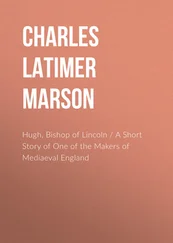Paul Vinogradoff - Villainage in England - Essays in English Mediaeval History
Здесь есть возможность читать онлайн «Paul Vinogradoff - Villainage in England - Essays in English Mediaeval History» — ознакомительный отрывок электронной книги совершенно бесплатно, а после прочтения отрывка купить полную версию. В некоторых случаях можно слушать аудио, скачать через торрент в формате fb2 и присутствует краткое содержание. Жанр: foreign_prose, Юриспруденция, История, foreign_edu, foreign_antique, на английском языке. Описание произведения, (предисловие) а так же отзывы посетителей доступны на портале библиотеки ЛибКат.
- Название:Villainage in England: Essays in English Mediaeval History
- Автор:
- Жанр:
- Год:неизвестен
- ISBN:нет данных
- Рейтинг книги:4 / 5. Голосов: 1
-
Избранное:Добавить в избранное
- Отзывы:
-
Ваша оценка:
- 80
- 1
- 2
- 3
- 4
- 5
Villainage in England: Essays in English Mediaeval History: краткое содержание, описание и аннотация
Предлагаем к чтению аннотацию, описание, краткое содержание или предисловие (зависит от того, что написал сам автор книги «Villainage in England: Essays in English Mediaeval History»). Если вы не нашли необходимую информацию о книге — напишите в комментариях, мы постараемся отыскать её.
Villainage in England: Essays in English Mediaeval History — читать онлайн ознакомительный отрывок
Ниже представлен текст книги, разбитый по страницам. Система сохранения места последней прочитанной страницы, позволяет с удобством читать онлайн бесплатно книгу «Villainage in England: Essays in English Mediaeval History», без необходимости каждый раз заново искать на чём Вы остановились. Поставьте закладку, и сможете в любой момент перейти на страницу, на которой закончили чтение.
Интервал:
Закладка:
The constant denomination for those who have no part in the common arable fields, but hold only crofts or small plots with their homesteads, is 'cotters' ( cotsetle , cottagiarii , cottarii 287 287 Glastonbury Inqu. (Roxburghe Series), 137: 'Cotsetle debent faldiare ab Hoccade usque ad festum S. Michaelis.' Cartulary of St. Peter of Gloucester (Rolls Series), iii. 71: 'Burgenses Gloucestriae reddunt una cum aliis tenentibus ad manerium Berthonae praedictae per annum de coteriis cum curtillagiis in suburbio Gloucestriae quorum nomina non recolunt 29 solidos 7 d. de redditu assiso.' Ibid. iii. 116: 'Cotlandarii: Johannes le Waleys tenet unum mesuagium cum curtillagio et faciet 8 bederipas et 3 dies ad fenum levandum, et valent 13½ d.'
, etc.). They get opposed to villains as to owners of normal holdings 288 288 Norfolk Feodary, Additional MSS. 2, a: 'Et idem Thomas tenet de predicto Roberto de supradicto feodo per predictum servicium sexaginta mesuagia; 21 villani de eodem Thoma tenent. Item idem Thomas tenet de predicto Roberto 9 cotarios, qui de eo tenent in villenagio,' Cf. Rot. Hundred, ii. 440, a.
. Exceptionally the term is used for those who have very small holdings in the open fields. In this case the authorities distinguish between greater and lesser cotters 289 289 Cartulary of Battle, Augment. Office, Misc. Books, 57, f. 37, b: 'Virgarii … Cotarii, qui tenent dimid. virgatam.' Ibid. 36, b: 'Cottarii majores et minores.'
, between the owners of a 'full cote' and of 'half a cote 290 290 Glastonbury Inquis. (Roxburghe Series), 114: 'Rad. Forest. ½ cotsetland pro 18 d. et operatur sicut dimidius cotarius sed non falcat.'
.' The bordarii , so conspicuous in Domesday, and evidently representing small tenants of the same kind as the cottagers, disappear almost entirely in later times 291 291 Glastonbury Inquis. (Roxburghe Series), 14: 'Predictus W. habet tres bordarios in auxilium officii sui. Illi tres bord. habent corredium suum in aula abbatis, in qua laborant.' Terrae Templariorum, Queen's Rem. Misc. Books, 16, f. 27: 'Unusquisque bordarius debet operari una die in ebdomada.' Cf. 27, b.
.
Results as to terminology.
We may start from this last observation in our general estimate of the terminology. One might expect to find traces of very strong French influence in this respect, if in any. Even if the tradition of facts had not been interrupted by the Conquest, names were likely to be altered for the convenience of the new upper class. And the Domesday Survey really begins a new epoch in terminology by its use of villani and bordarii . But, curiously enough, only the first of these terms takes root on English soil. Now it is not a word transplanted by the Conquest; it was in use before the Conquest as the Latin equivalent of ceorl , geneat , and probably gebúr . Its success in the thirteenth and fourteenth centuries is a success of Latin, and not of French, of the half-literary record language over conversational idioms, and not of foreign over vernacular notions. The peculiarly French ' bordier ,' on the other hand, gets misunderstood and eliminated. Looking to Saxon and Danish terms, we find that they hold their ground tenaciously enough; but still the one most prevalent before the Conquest— ceorl —disappears entirely, and all the others taken together cannot balance the diffusion of the 'villains.' The disappearance of ceorl may be accounted for by the important fact that it was primarily the designation of a free man, and had not quite lost this sense even in the time immediately before the Conquest. The spread of the Latin term is characteristic enough in any case. It is well in keeping with a historical development which, though it cannot be reduced to an importation of foreign manners, was by no means a mere sequel to Saxon history 292 292 The history of the terms in Saxon times and the terminology of the Domesday Survey will be discussed in the second volume. My present object is to establish the connexion between feudal facts and such precedents as are generally accepted by the students of Saxon and early Norman evidence.
. A new turn had been given towards centralisation and organisation from above, and villanus , the Latin record term, illustrates very aptly the remodelling of the lower stratum of society by the influence of the curiously centralised English feudalism.
The position of the peasantry gets considered chiefly from the point of view of the lord's interests, and the classification on the basis of services comes naturally to the fore. The distribution of holdings is also noticed, because services and rents are arranged according to them. But the most important fact remains, that the whole system, though admitting theoretically the difference between personal freedom and personal subjection, works itself out into uniformity on the ground of unfree tenure. Freemen holding in villainage and born villains get mixed up under the same names. The fact has its two sides. On the one hand it detracts from the original rights of free origin, on the other it strengthens the element of order and legality in the relations between lord and peasant. The peasants are custumarii
Конец ознакомительного фрагмента.
Текст предоставлен ООО «ЛитРес».
Прочитайте эту книгу целиком, купив полную легальную версию на ЛитРес.
Безопасно оплатить книгу можно банковской картой Visa, MasterCard, Maestro, со счета мобильного телефона, с платежного терминала, в салоне МТС или Связной, через PayPal, WebMoney, Яндекс.Деньги, QIWI Кошелек, бонусными картами или другим удобным Вам способом.
1
Miss Lamond's edition of Walter of Henley did not appear until the greater part of my book was in type. I had studied the work in MS. So also I studied the Cartulary of Battle Abbey in MS. without being aware that it had been edited by Mr. Scargill Bird. Had Mr. Gomme's Village Communities come to my hands at an earlier date I should have made more references to it.
2
English Historical Review, No. 1.
3
In his Considérations sur l'histoire de France.
4
History of Boroughs.
5
Ancient Rights of the Commons of England.
6
Quoted by Palgrave, English Commonwealth, i. 192, from the second edition of 1786. The first appeared in 1784.
7
The first edition of the Commentaries appeared in 1765. I have been using that of 1800.
8
'Es war eine Zeit, in der wir Unerhörtes und Unglaubliches erlebten, eine Zeit, welche die Aufmerksamkeit auf viele vergessene und abgelebte Ordnungen durch deren Zusammensturz hinzog.' Niebuhr in the preface to the first volume of his Roman history, quoted by Wegele, Geschichte der deutschen Historiographie, 998.
9
Enquiry into the Rise and Progress of the Royal Prerogative, 1831.
10
History of the English Commonwealth, 1832; Normandy and England, 1840.
11
I do not give an analysis of Hallam's remarkable chapters on England in his work on the Middle Ages (first edition, 1818), because they are mostly concerned with Constitutional history, and the notes on the classes of Saxon and Anglo-Norman Society are chiefly valuable as discussions of technical points of law. Hallam's general position in historical literature must not be underrated; he is the English representative of the school which had Guizot for its most brilliant exponent on the Continent. In our subject, however, the turning-point in the development of research is marked by Palgrave, and not by Hallam. Heywood (Dissertation on Ranks and Classes of Society, 1818) is sound and useful, but cannot rank among the leaders.
Читать дальшеИнтервал:
Закладка:
Похожие книги на «Villainage in England: Essays in English Mediaeval History»
Представляем Вашему вниманию похожие книги на «Villainage in England: Essays in English Mediaeval History» списком для выбора. Мы отобрали схожую по названию и смыслу литературу в надежде предоставить читателям больше вариантов отыскать новые, интересные, ещё непрочитанные произведения.
Обсуждение, отзывы о книге «Villainage in England: Essays in English Mediaeval History» и просто собственные мнения читателей. Оставьте ваши комментарии, напишите, что Вы думаете о произведении, его смысле или главных героях. Укажите что конкретно понравилось, а что нет, и почему Вы так считаете.












